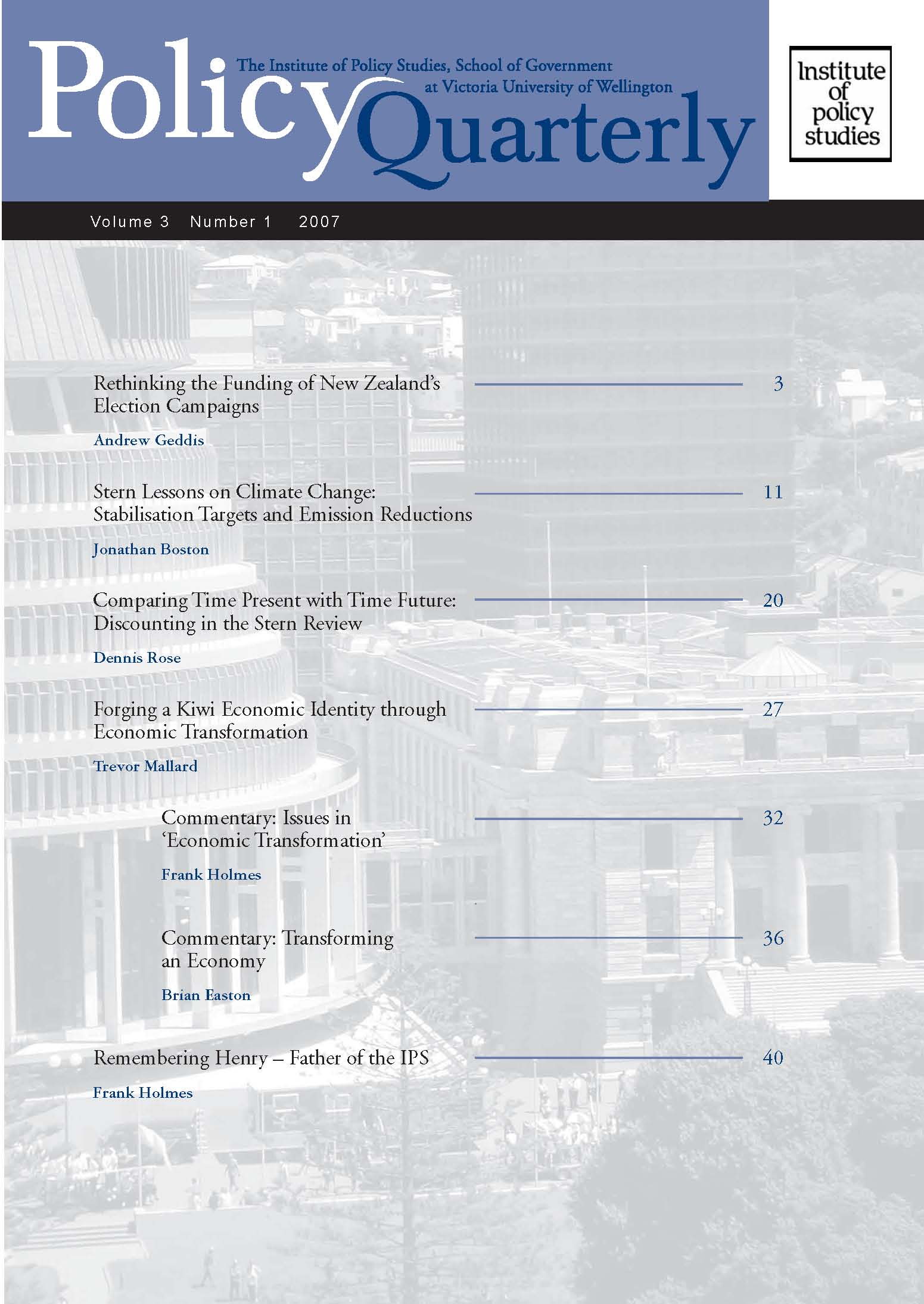Stern lessons on climate change: stabilisation targets and emission reductions
DOI:
https://doi.org/10.26686/pq.v3i1.4217Keywords:
United Nations Framework Convention on Climate Change (UNFCCC), GHG concentrations, Climate Change, Stern ReviewAbstract
In mid-2005 the British government commissioned its chief economic adviser, Sir Nicholas Stern, to review the economics of climate change. His report, released in late October 2006, is detailed, comprehensive and sobering. Not surprisingly, given the many controversies surrounding the causes and likely consequences of climate change, the report has sparked vigorous debate. Predictably, various critics have questioned key elements of the scientific evidence upon which the Stern Review is based (see Carter, et al., 2006; Lawson, 2006). Others have challenged some of the main assumptions underpinning the Review’s economic analysis, such as the use of a very low discount rate, the focus on total costs and benefits rather than marginal costs and benefits, and the claimed tendency to rely on the most pessimistic studies and estimates of the damage that global warming may cause.
Downloads
Downloads
Published
Issue
Section
License
Permission: In the interest of promoting debate and wider dissemination, the IGPS encourages use of all or part of the articles appearing in PQ, where there is no element of commercial gain. Appropriate acknowledgement of both author and source should be made in all cases. Please direct requests for permission to reprint articles from this publication to Policy-Quarterly@vuw.ac.nz.



